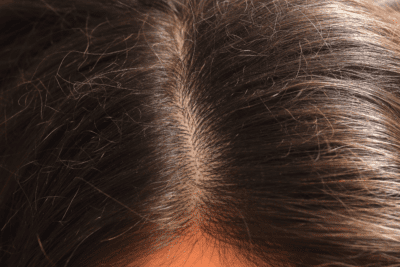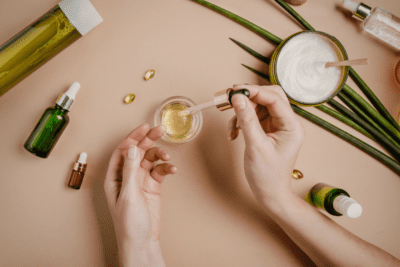One can consider dandruff a common scalp condition, and it is usually characterized by itchiness and flaking skin. Although dandruff can’t lead to hair loss on its own, one might suffer from inflammation on the scalp in severe cases. It can result in hair shredding in the long run. Make sure to comprehend dandruff’s causes and how to treat the condition. It will be a good idea to use specialized shampoos and maintain the hygiene of the scalp for managing dandruff effectively. Also, you need to address the underlying aspects such as fungal infections and dry skin if you want to encourage the development of healthy hair.
In this post, we have fleshed out the causes and treatments of dandruff while emphasizing does dandruff cause hair loss.
Causes of dandruff
Poor Diet
It is possible to suffer from dandruff because of a poor diet lacking nutrients such as omega-3 fatty acids, vitamins, and zinc. These nutrients are responsible for maintaining healthy hair and scalp. B vitamins provide support to the health of the skin while minimizing inflammation. On the other hand, zinc aids in regulating the production of sebum. Moreover, omega-3 fatty acids are present in nuts and fish and they are accountable for the hydration of the scalp.
Not Shampooing Enough
One can also struggle with dandruff because of infrequent shampooing. It can result in the accumulation of dirt, oil, and dead skin cells on the scalp. This kind of buildup can result in the establishment of an environment where fungi can thrive. It can result in dandruff flakes in the long run.
May You Like This – Is Aloe Vera Soap Good for Acne?
Cold, Dry Weather
Cold and dry weather can also lead to the formation of dandruff. The scalp can become dried out resulting in the formation of itchiness and flakiness. The lack of humidity present in the air during the cold winter months can get rid of moisture from the scalp. In this way, the dryness of the scalp prompts it to generate more oil which can result in further dandruff symptoms.

Age
One can also suffer from this condition with age. When people become old, the turnover rate of the cells of the skin becomes sluggish. It can result in the collection of dead cells on the scalp. This can lead to the formation of dandruff flakes. Moreover, there can be hormonal changes during one’s lifetime which can also lead to dandruff symptoms.
Treatment of dandruff
Healthally Amla Shikakai Shampoo
You may use the Healthally Amla Shikakai Shampoo to get rid of dandruff. This organic shampoo contains Amla which will prevent the formation of dandruff or any other type of hair infection. Moreover, the presence of Amla will likewise assist in ineffective cleansing. It can be responsible for strengthening and stimulating the hair follicles.
Balanced Diet
Make it a point to maintain a balanced diet if you want to treat dandruff. Food items packed with B vitamins, zinc, and omega-3 fatty acids will help to get the job done. Try to incorporate these nutrients into your daily diet so that they can provide support to the functioning of a healthy scalp and get rid of dandruff.
Scalp Massage
Massaging the scalp will be an effective way to treat dandruff since it will help to loosen the flakes and enhance circulation. Massage the scalp gently to distribute the natural oils uniformly and also remove the dead skin cells. In this way, it will minimize accumulation that can result in the formation of dandruff. It will likewise promote healthy growth of hair by stimulating the hair follicles.
Avoid Harsh Hair Products
It is also imperative to stay away from using harsh hair products if you want to treat dandruff. Make sure to avoid using products consisting of parabens, alcohol, and sulfates since these can irritate the scalp in the long run. On the other hand, try to go for hypoallergenic, gentle shampoos as well as conditioners intended for sensitive scalps.

Manage Stress
Lastly, we will talk about managing stress while treating dandruff. Stress can make the immune system weak and this can result in inflammatory responses that can make the scalp conditions worse. Make sure to practice relaxation techniques such as yoga, meditation, and so on to minimize anxiety and stress.
Conclusion
Let us hope that this blog post has provided you with an appropriate reply on does dandruff cause hair loss. It is essential to comprehend the causes of this condition since it can help you to make effective treatments. A healthy scalp that is free from dandruff will enhance your lifestyle to a large extent. Therefore, make sure to stick to the guidelines mentioned in this article to treat dandruff in the best possible way.

